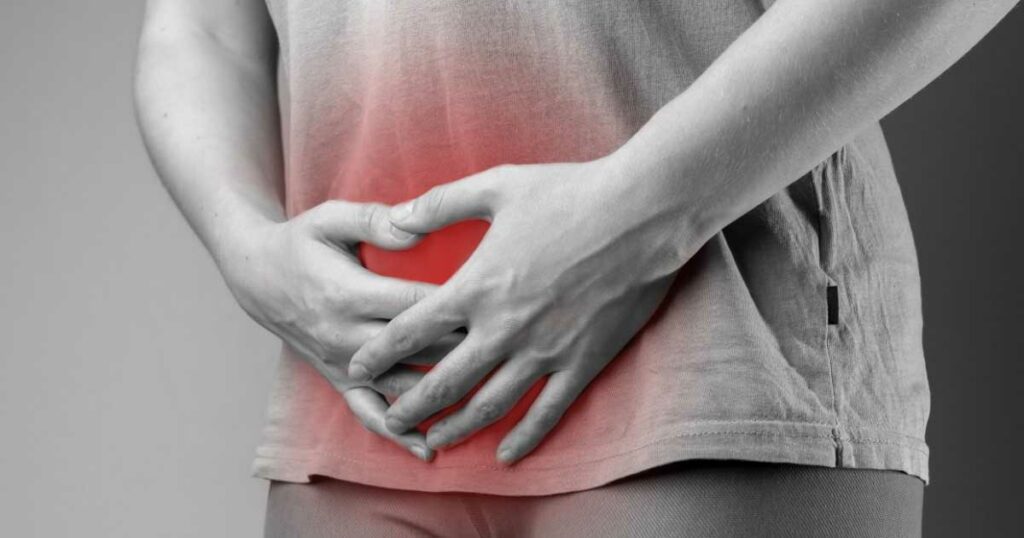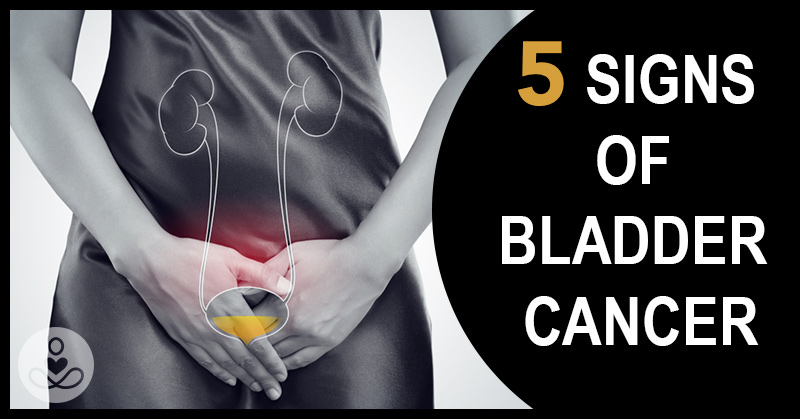Urinary tract infections (UTIs) are a common health problem for many women. They are usually caused by bacteria entering the urethra and infecting the bladder. However, sometimes bladder pain can be a sign of a more serious condition like bladder cancer. It is important to be able to distinguish between the two in order to seek appropriate medical attention. Let’s explore the difference between a UTI and bladder cancer, and look at the five signs of bladder cancer that women should not ignore.
The Difference between a UTI and Bladder Cancer

Although both UTIs and bladder cancer can cause bladder pain, there are some key differences between the two. UTIs are typically caused by bacterial infections and are more common, while bladder cancer is a more serious condition characterized by the uncontrolled growth of abnormal cells in the bladder. UTIs often come with symptoms such as a frequent urge to urinate, burning sensation during urination, cloudy or bloody urine, and lower abdominal pain. Bladder cancer may also present with similar symptoms, but additional signs may be present which should not be ignored. (1)
Causes of Bladder Cancer

Bladder cancer is commonly caused by various factors, including exposure to certain chemicals or toxins, such as those found in cigarette smoke. Other risk factors include chronic bladder infections, long-term catheter use, and certain genetic predispositions. It is important to be aware of your personal risk factors and take necessary precautions to minimize the chances of developing bladder cancer. (2)
Read More: Vulvar Cancer: How One Mom’s Skin Condition Turned into a Dangerous Cancer
5 Signs of Bladder Cancer Women Should Not Ignore

One of the most difficult problems for detecting bladder cancer, particularly for women, is distinguishing the symptoms of a UTI with those of cancer. The symptoms are quite similar and can go on dismissed for a UTI for longer than they should. While the two health problems share common symptoms, there are some differences to watch out for. These are 5 signs of bladder cancer that you should never ignore. (3)
1. Blood in the Urine (Hematuria)

One of the most common and noticeable signs of bladder cancer is blood in the urine. If you notice any discoloration, such as pink, red, or brown urine, it could be an indication of bladder cancer and should be evaluated by a healthcare professional.
2. Frequent Urination

While frequent urination is a symptom commonly associated with UTIs, it can also be a sign of bladder cancer. If you find yourself needing to urinate more often than usual without any relief, it is advisable to seek medical advice.
3. Painful Urination (Dysuria)

Pain or discomfort during urination is another symptom that can be associated with both UTIs and bladder cancer. If you experience persistent pain during urination, it is important to consult a doctor to rule out bladder cancer. This is especially if the pain does not go away even after taking antibiotics.
4. Pelvic Pain and Pressure

Women with bladder cancer may experience persistent pelvic pain or pressure. This pain may radiate to the lower back or feel like a constant dull ache in the pelvic area.
5. Unexplained Weight Loss

Sudden and unexplained weight loss can be a sign of various underlying health issues, including bladder cancer. If you have experienced significant weight loss without any changes in your diet or exercise routine, it is important to consult with a healthcare professional.
Read More: 6 Beverages With Anti-Cancer Properties
Bladder Cancer Prevention

While there is no guarantee of preventing bladder cancer, you can greatly reduce your risk by taking certain steps. These include (4):
- Not smoking or quitting if you do smoke. Smoking is the leading cause of bladder cancer, and quitting can help reduce your risk.
- Eating a healthy diet that includes plenty of fruits and vegetables.
- Drinking plenty of water to help flush out toxins from your body.
- Exercising regularly to maintain a healthy weight.
- Avoiding exposure to chemicals and other substances that may increase your risk of bladder cancer.
- Getting tested regularly if you have a family history of bladder cancer.
Talking to Your Doctor about Bladder Cancer
If you are experiencing any of the aforementioned symptoms or are concerned about bladder cancer, it is crucial to make an appointment with your healthcare provider. They will conduct a thorough examination, review your medical history, and may order additional tests to determine the cause of your symptoms. These tests may include urine analysis, imaging tests, or a cystoscopy to examine the bladder using a special instrument.
The Bottom Line
Bladder pain can be a concerning symptom, but it does not necessarily mean bladder cancer. UTIs are a common occurrence among women, but it’s important to be aware of the potential signs of bladder cancer that should not be ignored. If you experience any of the symptoms mentioned above, it is essential to consult with a healthcare professional for proper diagnosis and treatment. Early detection of bladder cancer greatly increases the chances of successful treatment and a positive outcome.
Read More: 35+ Things We Do Every Day Linked to Cancer
Sources
- https://www.moffitt.org/cancers/bladder-cancer/faqs/uti-vs-bladder-cancer/#:~:text=UTI%20vs%20Bladder%20Cancer,-Bladder%20infections%20are&text=In%20addition%20to%20being%20painful,grow%20and%20divide%20very%20rapidly.
- https://www.cancer.gov/types/bladder
- https://www.mayoclinic.org/diseases-conditions/bladder-cancer/symptoms-causes/syc-20356104
- https://cancer.osu.edu/for-patients-and-caregivers/learn-about-cancers-and-treatments/cancers-conditions-and-treatment/cancer-types/genitourinary-cancers/bladder-cancer/prevention

